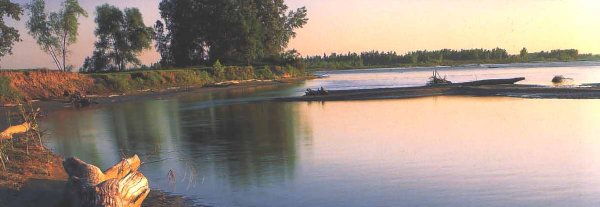
Prairie Manners
Captain Clark noted the date in his journal, 29 August 1804, and put down his quill. It was Four O'clock in the afternoon and both he and Merriweather were feeling much better. Perhaps it was something they ate, but neither one of them could account for how the two of them had come to feel so ill the day before. They had made camp below the Calumet Bluff expecting that a rest would improve their disposition, and sent a message on ahead to the Yankton Sioux regarding their impending meeting. They were not unexpected. Two days earlier they had set fire to the prairie above the white chalky bluffs below the mouth of the River Jacques. It was just good manners. Such was the customary method of announcing one's presence and peaceful intentions on the Missouri when in Indian country.
Sergeant Pryor and Mr. Dorian had been sent on ahead to contact the tribe and invite the chiefs to a meeting at the river's edge. All had gone well. As expected, the two men had been intercepted by several Sioux Indian scouts and escorted onward to their camp, a distance of about twelve miles, and were now returned to the far shore with a band of about seventy five men and boys, including among them, five Yankton Chiefs. A pirogue was sent across, returning with Sergeant Pryor and Mr. Dorian. It was in this reunion that the two men reported their observations of the Indian camp and the descriptions of the buffalo hide dwellings that Captain Clark then diligently entered into his journal. They were sent back across the river with gifts of tobacco, corn, and some kettles with which to prepare a feast. The next two days would be filled with ceremony, speech, negotiation and more gifts meant to further the peacemaking aims of Thomas Jefferson.